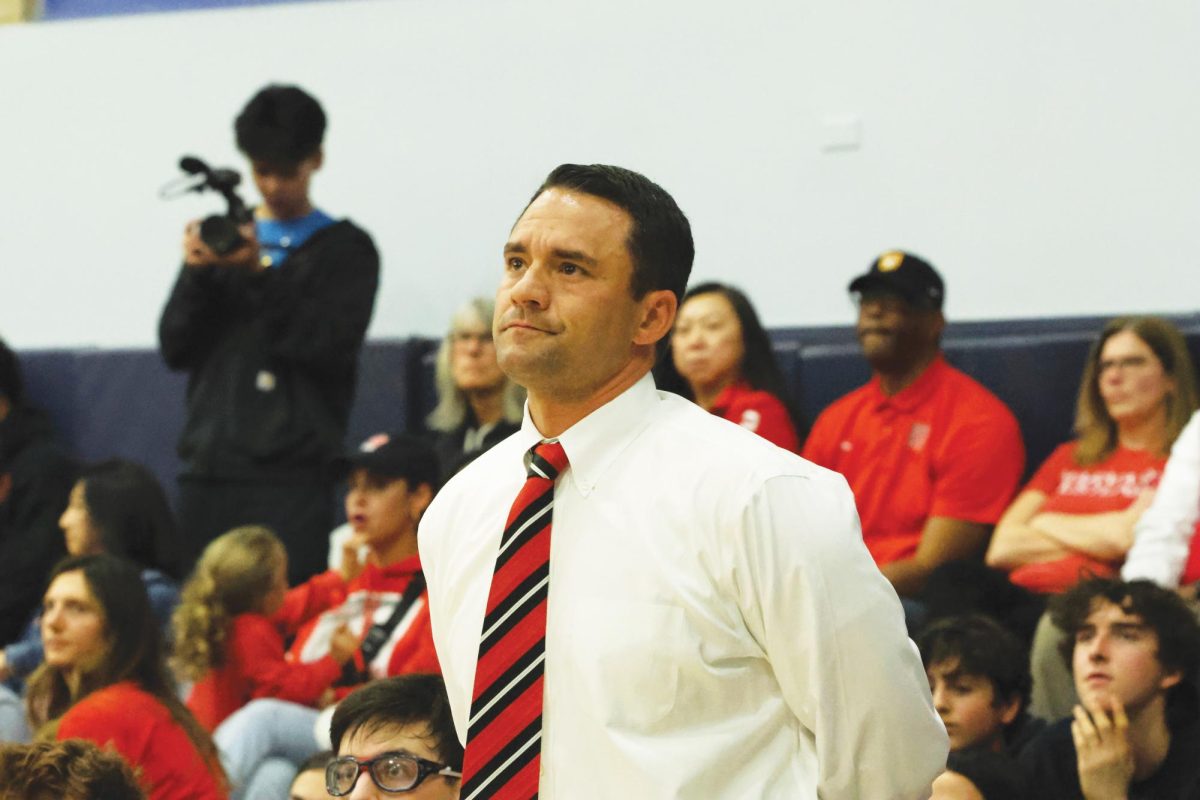Abraham Gallardo ’20 may seem crazy, but he swears he isn’t. Standing in an empty Rugby classroom, Gallardo wildly gestured at the chalkboard filled with arrows and names, explaining how it was possible for Hitler to have escaped to Argentina.
Gallardo is not the only one who believes in such theories. Conspiracy theories have become more popular in mainstream media in recent years, as over 50 percent of Americans believe in some sort of theory, according to Psychology Today. The growth of the Internet has enabled everyone with any sort of conspiracy theory to create their own medium to promote it, author of many publications on conspiracy theories M. R. X. Dentith said.
A conspiracy theory is an alternative explanation for certain events or phenomena, often supported by unreliable “evidence” or false beliefs, according to the New York Times. Although they are often dismissed as fake or crazy, there are many groups who maintain strong beliefs in these theories.
“I think conspiracy theories have been with us for a while now, and some research indicates there are actually fewer conspiracy theories now than there were fifty or sixty years ago,” Dentith said. “Rather, I think they are easier to find because of the Internet. In the old days, if you wanted to write about a particular conspiracy theory, you had to write a book or a magazine article, and then wait months and months to get feedback on your theory. Now, you can post your conspiracy theory online, and it can be picked up or critiqued almost immediately. So, it can look like they are really popular [now] , but what we might be seeing is that it is just easier to find conspiracy theories than ever before.”
Conspiracy theories have also become more popular through the rise of YouTube videos that dive into different suspicions, according to the New York Times. One of the most popular YouTubers Shane Dawson has gotten millions of views on his conspiracy videos, which cover modern pop culture theories in a documentary and investigation style.
As conspiracy theories are becoming more popular, many groups and publications have been formed for discussions of these conspiracies, founder of the Skeptics Society and author of many publications on conspiracy theories Michael Shermer said.
“I founded Skeptic magazine and the Skeptics Society in 1992 with the goal of exploring mysteries and promoting science and reason as the best tools we have for solving mysteries,” Shermer said.
Although conspiracy theories have grown in popularity all over the country, young people are some of the main consumers of these theories, according to the New York Times. Especially at schools with many young people, there are large numbers of people who believe in conspiracy theories, according to the New York Times. Students like Naomi Ogden ’20 and Gallardo said that conspiracy theories give them a unique perspective on the world.
Conspiracy theories have been an important part of American culture since before the Civil war, according to the Guardian. In fact, a popular theory derived from Abraham Lincoln’s assassination was that the some high-placed Roman Catholics, including the Pope, were responsible for his death, according to Vox. Theory is based on the fact that there was a large group of catholic Irish-Americans living in the United States who hated Lincoln and the democratic party.
While conspiracy theories are present in other countries, they do not play the same role in politics as they do in America, New Zealand native Dentith said.
While theories have been mentioned in many American history courses, their rise in media has sparked growth of classes who focus on the theories, Shermer said, who is currently writing a class guide for teaching about conspiracy theories.
However, with the rise of the Internet, he said he’s seen an expansion in the reach of these theories. Although there have always been groups who subscribed to “fringe media,” their ideas have become more widespread in recent years, history and social studies teacher Dave Waterhouse said.
Many students believe in conspiracy theories, often because they say they feel skeptical about the explanations given by either mainstream media or the government. Gallardo believes in many conspiracy theories, specifically ones that are government-related, he said.
“I believe that in some instances media or government hide essential facts to stories,” Gallardo said. “In other cases, the conspirators just hid their evidence so much that these institutions don’t know it either.”
Although he says that some theories are “just for jokes,” he does truly believe in the ones where the logic is thoroughly presented in a reasonable sequence. Many of the theories he believes in have to do with the government’s role in major issues, Gallardo said.
“I don’t think the government specifically is the only actor in these situations, but they are at least involved in them,” Gallardo said. “For example, they may have not done something but knew it was going to happen and let it be.”
Part of the attraction is due to the fact that conspiracy theories are often hard to disprove, Waterhouse said. Although many seem crazy and outrageous, people are always able to say that the lack of proof is due to the party in question covering it up well. Because they’re often impossible to completely disqualify, people have an easier time of believing them, Waterhouse said.
While Waterhouse thinks that conspiracy theories can detract from true historical analysis, he said he finds them entertaining and interesting to explore. People often attribute misfortunes or unpredictable events to conspiracies, such as people saying aliens control the world, he said.
Waterhouse said he thinks people believe in these theories because they provide a simple explanation and solution to many of the problems of the world. Especially in times of turmoil, like the last few years, conspiracy theories have been very attractive because they provide a panacea for events that seem to be out of people’s control, Waterhouse said.
Gallardo, on the other hand, said he thinks conspiracy theories teach students to be skeptical of the world and look at events with different perspectives.
“I don’t think it’s important for people to believe in conspiracy theories per se, but at the very least [they should] always be ready to critique and analyze our world,” Gallardo said.







































